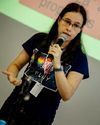Databases Conference
Databases
Built mostly in Java, Cassandra is a powerful open source NoSQL database, based on the model of partitioned row store. This talk will provide key features, general uses cases, Cassandra architecture, benefits, tools, and integration with existing Java applications.
Databases
There are many considerations you should take into account when designing the database architecture of a Software-as-a-Service (SaaS) product. Scalability, geography, security, ease of implementation and deployment, performance, and data retention are all factors to consider. We’ll explore these issues, look at single and multi-tenant database models, and discuss options in both relational SQL and non-relational noSQL worlds.
Databases
Applying principles from Domain-Driven Design such as strategic design and bounded contexts, this presentation will help you choose and apply the right data layer for your application's model or models. We will explore traditional relational databases, graph databases, document databases, key/value stores, polyglot persistence, CQRS, event sourcing, and data layers for microservices.
Databases
I will show how one can use the Elastic Stack to extract the events from application logs, structure them, and prepare them to be explored within the Elastic Stack. This will involve indexing real world logs from applications. This talk will also explore how to re-structure data that already exists within Elasticsearch via re-indexing. Listeners will learn how to take their own logs and extract meaningful visualizations using The Elastic Stack.
Databases
Very few developers receive training in Structured Query Language (SQL), but they are expected to have highly efficient database queries. Add in bad data normalization and lightning quick applications suddenly crawl. This session is a must for new developers who do not want to suffer hours of extra effort working with their data. We will cover how to avoid situations like the N+1 Problem, primary key violations, improper relationships, and more.
Databases
When we were asked to move our SQL migrations to under 5 minutes of client downtime we said, “Impossible.” But we actually managed to achieve 0 minutes. In this talk, I will share how we achieved large scale (200 developers and terabyte sized databases) fully online migrations every month to our production SQL Server databases. We will cover the scripting changes, DB validations, and CI improvements we introduced to make this possible.
Databases
Relational databases such as MySQL usually required a document schema to be defined before documents can be stored. But now you can store data in a JSON format without a schema without needing SQL programming skills. Plus you get both the schemaless document store and simultaneous SQL access to your data with developers needing SQL programming skills. You get the best of the relational database world and the schemaless docstore in one.
Databases
Insert latency going up? Replication delay getting you down?
This talk will show you how to make your MySQL deployment lean and mean without resorting to rewriting your schema or application queries. We'll go through how to instrument your cluster, how to quickly write and run load tests specific to your workload, and how to analyze the results and determine what you should change in that default my.cnf you copied from StackOverflow in 2008.
This talk will show you how to make your MySQL deployment lean and mean without resorting to rewriting your schema or application queries. We'll go through how to instrument your cluster, how to quickly write and run load tests specific to your workload, and how to analyze the results and determine what you should change in that default my.cnf you copied from StackOverflow in 2008.
Databases
There are myriad data storage systems available for every use case imaginable, but letting application teams choose storage engines independently can lead to duplicated efforts and wheel reinvention. This talk will explore how to build a reusable data pipeline based on Kafka to support multiple applications, datasets, and use cases including archival, warehousing and analytics, stream and batch processing, and low-latency "hot" storage.
Databases
Postgres - a powerful DBMS with a big feature set, good performance, and stability. Yet in PHP, it's commonly overlooked for mySQL (and its forks) or NoSQL options.
If you’re a mySQL user, Postgres might seem strange - from the way you install and configure it to the way you interact with it and create schemas. Things are different.
Liam discusses reasons you might use Postgres, and looks at the differences between the two.
If you’re a mySQL user, Postgres might seem strange - from the way you install and configure it to the way you interact with it and create schemas. Things are different.
Liam discusses reasons you might use Postgres, and looks at the differences between the two.
Databases
Where is the truth in sentences like "ORMs are slow" or "SQL is insecure?"
We will walk through the reasons that shaped ORM architecture, their potential and limitations.
After this talk, you will be in a better position to choose the best fit for you and your next application.
We will walk through the reasons that shaped ORM architecture, their potential and limitations.
After this talk, you will be in a better position to choose the best fit for you and your next application.
Databases
N+1 queries are prevalent and problematic in almost every web application. However, they are a silent performance killer. Often they go under the radar and their existence will not cause a web application to grind to a halt. There exists standard ways to eliminate them but they fall a little short. This presentation will dive into a way to detect these the problems as well as improvements to the known solutions.
© 2010-2025 ConFoo. All rights reserved. Code of Conduct
Cookie Consent
To provide the best experiences, the usage of cookies are necessary. Some are essential for the proper functioning of the site, while others help us better cater to your interests.

















